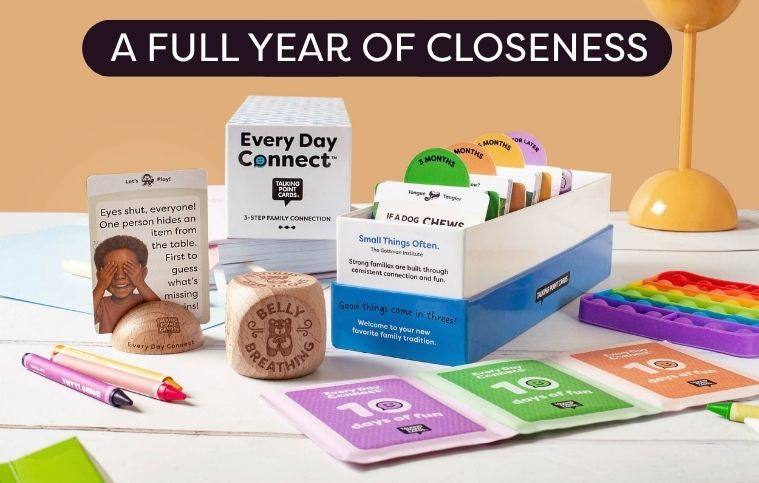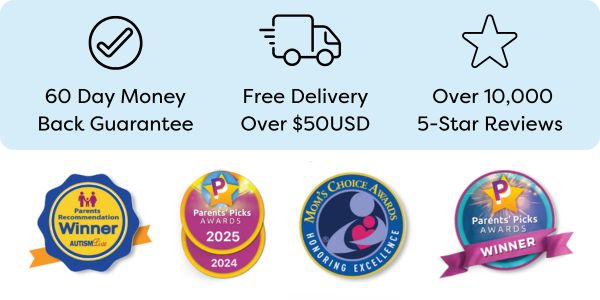SHOP
About
Harmonizing Differences
How to Appreciate Diversity in Early Relationship Stages

You know that magical, scintillating feeling when you first start dating someone new? Yeah, that rush of dizzyingly great emotions that makes your toes tingle and gives you a perma-smile for weeks.
But it's not all rainbows and unicorns. Because mixed into that whirlwind of warm fuzzies are little hints—tiny gut pangs hinting at potential obstacles down the road. Subtle differences in your personalities, beliefs, or lifestyles that maybe haven't fully revealed themselves yet.
So how do you navigate those first few months of infatuation while still staying aware of (and appreciating) the diversity between you two love-buzzed lovebirds? It's a delicate dance, but one that'll set the stage for long-term relationship success if you play your cards right.
In this article, we'll explore:
-
Why celebrating your differences (within reason) is so dang important
-
Specific tips for spotting and cherishing diversity in beliefs, personalities, backgrounds, and more during those giddy first months
-
Red flags that differences have turned into deal-breakers (and how to handle them)
-
Communication strategies to lay a solid foundation based on mutual understanding
But first...
Diversity Is the Spice of Life (and Relationships)

Think about the most interesting, life-giving, creative relationships and communities you've ever been a part of. They were filled with diversity, right? A mix of personalities, backgrounds, opinion. People who could respectfully challenge your point of view or show you a new perspective.
Human connection and growth thrives on diversity. And in romantic relationships, that same principle rules true. By appreciating and learning from each other's differences, you continually breathe new life into the relationship.
Some key benefits:
-
You'll stay intellectually engaged: Differing opinions, worldviews, and approaches to life will motivate you to think critically and consider new angles.
-
Growth is inevitable: When you encounter fresh perspectives and undergo exposure to diversity, you naturally expand your mind and self-actualize.
-
The passion persists: Differences keep that spark alive by providing endless opportunities for curiosity, conversation, and compromise.
The alternative is a stagnant, boring relationship where nothing new ever happens. Where you know everything about each other and just cycle through the motions.
So diversity becomes the antidote to complacency, and the flame that keeps that initial spark crackling for decades.
But it's a delicate flame. Differences need to be handled with care at first (more on that later).

You're Both Beautifully and Intriguingly Different
The first few dates and months with someone new are a constant unfolding of discovery. And one of the most exciting parts is witnessing all the fascinating diversity arising between you two.
Even if you're from very similar cultural backgrounds, you'll inevitably have:
-
Different personalities: One of you is more extraverted and energetic, while the other is the laid-back introvert happy to listen.
-
Different life experiences: Where you grew up, the families you were raised in, and the personal journeys you've walked shape two entirely unique backstories.
-
Different worldviews: How you see the world, what principles you live by, your levels of traditionalism or progressiveness.
-
Different beliefs: Religion, politics, personal philosophies—there are endless opportunities for diversity here.
And those are just a few high-level areas of potential diversity. You'll also encounter differences in everything from:
-
Communication styles and conflict resolution habits
-
Hobbies, humor, musical tastes
-
Ambition levels, lifestyle pace, future goals
-
How you both handle emotions and provide emotional support
-
Imperfection - What if we're not even spelling words the same in our text convos??
In the beginning, all of these differences can trigger intrigue, excitement, and maybe even some skepticism. But handled the right way, they lay the groundwork for a richly dynamic, complementary relationship that's never stale or dull.
So if you're picking up on lots of diversity between you and your new partner—great! You've already unlocked one of the most vital ingredients for a lasting, growth-oriented connection. Now, you just have to appreciate and understand those differences in a spirit of curiosity, openness, and a dash of judiciousness.
That starts with some clarification.
Not All Differences Are Created Equal

Before we get into appreciation and communication strategies, it's important to clarify: While diversity is valuable in relationships (up to a point), differences need to exist within certain guardrails to foster a healthy dynamic.
In fact, some differences are by nature incompatible with long-term relationship success. These would be considered fundamental deal-breakers because they indicate wildly different core values and worldviews (as opposed to healthy diversity).
-
A few examples of this level of extreme difference:
-
"One of you wants an open relationship while the other expects monogamy."
-
"One person has a deep, abiding faith while the other is a staunch atheist and totally rejects spirituality."
-
"One partner wants kids while the other doesn't at all."
On the flip side, other differences, even if they seem major, can be appreciated and navigated if both partners approach them with a generous spirit. For instance:
-
Having different political leanings or voting habits (as long as it doesn't stem from a fundamental values clash)
-
Coming from contrasting cultural or religious backgrounds
-
One partner being decidedly more Type A or ambitious while the other lives a chiller existence
The goal is learning to spot which differences are healthy sources of diversity to nurture, versus deep-rooted incompatibilities requiring a serious rethink.
In the sections ahead, we'll cover strategies for navigating the "healthy diversity" kind of differences. First, though, there are some general principles to live by early on:

When in Doubt, Focus on Commonalities First
Even amidst abundant diversity, you were first drawn to this person for some key reasons. There were certain commonalities that caused your paths to intersect in a romantic sense. So in those first delirious months, make a concentrated effort to bond over the commonalities first while you figure out compatibility with the differences. Focus on:
-
Shared values you've already identified (e.g. both valuing honesty, adventure, ambition, family, etc.)
-
Interests you know you already have in common, whether it's certain hobbies, movies, foods, etc.
-
Hopes and dreams for the future that seem to align so far
-
Personality traits, quirks, or senses of humor that mesh delightfully with yours
Bonding over these familiar elements helps build the initial trust and warmth reqiored to then take things deeper start apprecaiting the richness of your differences.
This commonality focus also makes natural sense in early dating—when you're just scratching the surface getting to know someone, the commonalities tend to reveal themselves first before the full depth and nuance of diversity emerges.
Now, as you start to bond over those unifying elements, you can explore the fascinating divergences with open-minded curiosity...
Curiosity Melts Assumptions

In those first few dates and interactions with someone, you're each filtering each other through your own mental lenses of assumptions. It's human nature to start making little judgments and assessments right away.
Curiosity and humble questioning defuse those judgmental mindsets. By approaching differences with a curious beginner's mind, you stay open to new perspectives and learning opportunities.
For example, if your new partner practices a religion you don't have experience with, you might naturally start jumping to conclusions like: "Oh man, they must be really closed-minded in their thinking."
But hit the brakes! For all you know, they might actually have an incredibly open, progressive outlook on life - it just happens to incorporate a spiritual element. A curious learner would ask questions like:
-
"I don't know much about your religion—could you share a bit about what it means to you and the values it's instilled?"
-
"How does your spiritual outlook influence your overall worldview and approach to life? I'm really interested to learn."
Or maybe you discover they vote very differently than you in political elections. Instead of making assumptions like "They must be a crazy [insert opposing political affiliation here]!", get curious:
-
"I'm really interested to understand your perspective on political issues. What life experiences or beliefs most shape your voting habits?"
-
"When it comes to [specific policy issue you disagree on], how do you see that situation differently than me?"
Asking questions with an open, inquisitive mindset does two things:
-
It disarms your own internal assumptions and judgments, allowing you to take in someone's viewpoint in a fresh light.
-
It makes the other person feel respected, understood, and appreciates rather than judged for their differences.
The key is steering away from leading questions that already have an agenda ("So why do you believe that ridiculous thing?"). Frame your inquiries in a blame-free way focused on learning and walking a philosophical mile in their shoes.
After all, you're not dating yourself - you're choosing to enter into a partnership with someone beautifully different. The more you can understand where they're coming from, the better you'll navigate those differences with grace.

Don't Fixate on Changing Each Other (Yet)
In those first hazy months of a budding relationship, you're exploring whole new universes within each other. So many novel pieces of information flooding your brain about this fascinating specimen you've chosen to intimately know.
It's tempting to start envisioning subtle ways you might change or mold the other person as your connection deepens. "Okay, if we get serious, I'll get them into rock climbing..." or "Maybe I can help them see things my way on social issues..."
But trying to change someone's core beliefs or personality early on is a surefire way to sow resentment and division. Appreciate them for who they are first—then see if you're truly compatible with those traits or not.
Here's an example. Let's say their come from a pretty traditional upbringing, while you lean towards being wa progressive, modern, free spirit. It's a notable difference in how you approach society, gender roles, etc. The healthy approach: Be curious about why they see things the way they do, while also being transparent about your own perspective. Share stories and viewpoints, but don't latch on to an agenda of aggressively "modernizing" them right away.
If after several months of care and understanding, you still feel a fundamental disconnect on that level... well, that might be a sign this difference is a deal-breaker incompatibility. But at least you approached it with patience first. Had you started trying to radically "un-traditionalize" them from Day 1, you'd likely just clash heads and create a well of resentment that tanks the whole relationship.
Spot Red Flags (While Avoiding Kneejerk Dealbreaker Calls)

Sometimes in those early dating days, you'll stumble upon a difference that stops you in your tracks. A belief or personality quirk so shocking to your own worldview that you think "Oohhhh boy, this could be a BIG issue..."
For instance, maybe they:
-
Have some radical political or social views that seem to clash intensely with your personal values
-
Exude a level of [positive or negative] personality trait (like excessive frugality, anger issues, risk-taking) that concerns you
-
Seem to be on a totally different page about personal finance habits, life goals, or organization styles
When you spot differences this jarring, it's natural to feel uneasy. Some tiny red flags or sirens start blaring about long-term incompatibility.
But take those red flags seriously while still giving things time to play out. Making snap judgments on deal-breaker potential after the first few encounters is a rookie move.
Instead, be upfront about the root difference without vilifying the person over it. For example: "I noticed you mentioned having some very strong political views around [issue]. I have to admit, that stance really doesn't align with my own perspective at all. Could you elaborate
more on what shaped that outlook for you?"
Or:
"You know, I'm a naturally [very frugal/very messy/very punctual/etc.] person, and I noticed you seem to be the opposite where it comes to [money/cleanliness/punctuality]. I'm just curious how you approach that area."
Don't frame conversations like cross-examinations or accusations. Come from a place of openness and information-gathering first.
If after repeatedly circling back to the sticking point, it still seems like a legitimate long-term deal-breaker (i.e. you have fundamentally clashing core values or requirements), then it's okay to have an honest conversation about parting ways.
But give differences a legitimate chance to be understood, navigated, and appreciated—don't dip at the first sign of diversity.

Communication Strategies for Harmonizing Your Differences
Navigating differences in a spirit of curiosity, patience, and open-mindedness is the goal. But you also need a toolkit of specific communication strategies to facilitate that harmonization process.
Here are some of the most vital tools for fostering understanding around areas of diversity:
Explain the "why" behind differences
Don't just state your different viewpoint or stance—elaborate on where it comes from. Offer window into the life experiences, upbringing, influences, or personal reasons that shaped your stance. For example: "I think my fixation on always being super punctual comes from being raised by two strict military parents who demanded we were never late to anything as kids. It's just drilled into my psyche at this point."
Share personal stories to provide context
Stories breathe life and context into your perspectives. They allow you to sync up on not just opinions, but experiences that colored those world views. For example: "I'll never forget this one time when I was 11 years old and my little brother got really sick on vacation..." (Story that provides context for your differences around attitudes on childhood experiences, family life, financial priorities, etc.)
Use conversational "stitching"
Good communication is a dance, not a boxing match. Intentionally use phrases that "stitch" the conversation together, creating a spirit of back-and-forth flow. For example:
-
"Hmm, okay—I see what you're saying about [restate what they said]. Now let me give you another perspective on how I view that..."
-
"You raise an interesting point there about [reflect on their viewpoint]. Let me build on that by adding..."
These connective threads make the person feel heard and weave your point of view into the conversational fabric smoothly.
Call out areas of harmony and dissonance
Actively narrate where you're noticing alignment ("It sounds like we actually hold some common ground here when it comes to...") and misalignment ("This seems to be one area where we have very different outlooks, which is okay..."). The beauty is that it fosters understanding while neither of you has to profoundly "win" the viewpoint battle.
Thank each other for the diversity of thought
Consciously express gratitude when difference arises, but it's handled with mutual care, patience, and openness. This reinforces the process and motivates you both to keep appreciating each other: "You know, I'm really grateful we can discuss this pretty significant difference in how we view [issue] with curiosity and openness rather than judgment..."
Validate emotions and acknowledge sensitivities
Some differences will naturally feel more emotionally charged than others, depending on the person. Take care to validate feelings and acknowledge potential sensitivities. For example: "I can understand why my view on [topic] might feel hurtful or off-putting coming from your
perspective and experiences with that. Please let me know if I'm ever being insensitive..."
Over time, mastering these communication habits allows you to dance through areas of diversity without causing chasms or toxic misunderstandings. It's the foundation for a relationship that retains the richness of your differences as fuel for personal growth, intellectual stimulation, and lasting intrigue.
Appreciation Is the Final Ingredient

At the end of the day, really appreciating someone's differences requires heaping helpings of appreciation itself.
Not in a patronizing "I'll tolerate your quirks" kind of way. But in a bonafide spirit of gratitude for the simple fact that their diversity as a person broadens your horizons and enriches the relationship.
The active practice of:
-
Celebrating their ability to expose you to new viewpoints and life lenses
-
Appreciating their differences not with detachment, but as central parts of their identity you accept and admire
-
Giving thanks for the intrigue, intellectual engagement, and personal growth their diversity sparks within you
This appreciation transforms differences from potential obstacles into cherished gifts that sustain your curiosity and affection for decades to come.
Those first blissful months of a new relationship are like an exotic vacation. Everything feels fresh, alive, and endlessly fascinating about your new partner. Including (and perhaps especially) the many differences gradually revealing themselves across beliefs, personalities, backgrounds, and approaches to life.
If you simply seek to impose your own attitudes and viewpoints as "correct" from the start, you'll squander a beautiful opportunity. To appreciate the nuanced diversity flowering between you. To embark on an enthralling journey of mutual understanding, growth, and perspective-broadening.
By meeting differences with patience, care, curiosity, and skilled communication habits, you harmonize them into assets rather than obstacles or deal-breakers. You cherish the multitudes existing in one person—the multitudes that add delicious contradictions and complexities to the magical spark drawing you together.
There will be moments of tension, confusion, or questioning compatibility when differences arise. That's natural and okay. The key is giving them ample space to breathe, learn about them thoroughly, and determine if they're nourishing sources of vitality or true core incompatibilities. If approached with appreciation from the beginning, even seemingly major differences have incredible power. To facilitate personal growth, deepen intimacy, enrich your combined worldview, and supercharge your overall intellectual and emotional intimacy.
So respect the intrigue of those diverging backgrounds, personalities and perspectives early on. Foster them with humble curiosity, skillful dialogue, and a gratitude for this person fundamentally unlike yourself.
In doing so, you'll continually re-ignite the affectionate spark of your relationship's first exhilarating days. And transform the beauty of your differences into a lifetime source of passion, wisdom, and soulful harmony.
LIKED THIS ARTICLE?
SIGN UP FOR MORE!







